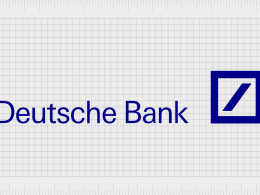by Franklin Templeton Investments blog, Franklin Templeton Investments
The Digest
Global equities were mixed last week on a regional, sector and factor basis. The MSCI World Index closed the week down 1.3%, dragged by performance in the United States, with the S&P 500 Index down 2.5% amidst a holiday-shortened week.1 The MSCI Asia Pacific Index closed the week down 0.2%, whilst European equities outperformed, with the Stoxx Europe 600 Index up 1.7%.2 Globally, momentum stocks were down 2.4%, whilst value stocks were down a more muted 0.6%.
Technology stocks continue to drive the US equity markets, with the sector down 4.4% last week and down 11% in the last six sessions. In the same six sessions, the NYSE FANG+ Index was down 12.3%. In August, 10 stocks accounted for >50% of the 7.2% monthly return on the S&P 500 Index, with the vast majority of those 10 coming from the technology space.3 Interestingly, despite the selloff, the US tech sector is still larger in terms of market capitalisation than the entire European stock market.
United Kingdom in Focus
The United Kingdom is firmly back in focus for investors in Europe. Brexit risk is on the increase as we edge closer to the deadline of the European Union (EU) Council Summit on 15 October with no real positive movement towards an agreement. Sterling, a proxy for Brexit risk, was weaker once again, trading at US$1.28 at the close on Friday last week, down 3.7% on the week. The British currency traded as high as US$1.348 on 1 September, showing how sentiment on the chances of a deal being reached has changed so far this month.
The key headlines last week focused on the UK government’s publication of its Internal Market Bill (UKIM) on 9 September as well as both sides ramping up the rhetoric on the chances of a deal. The UKIM bill is designed to ensure unrestricted trade between the four nations of the United Kingdom.
However, by the UK government’s own admission, the bill will break international law with regards to protocol on Northern Ireland agreed upon in last year’s Withdrawal Agreement. This relates to the powers the UK government would have to create regulations around trade between Northern Ireland and Great Britain. Those powers, if used, would be in direct contravention of rules around state aid and customs provisions of the Northern Ireland protocol.
The comment from the Northern Ireland Secretary Brandon Lewis that this would break international law in a “specific and limited” way, was met with derision. Leaders at the European Commission (EC) were very critical of the publication. Vice President Maros Sefcovic stated that in addition to breaking the law, it also “undermines trust and puts at risk the ongoing future relationship negotiations”. European Commission President Ursula von der Leyen also said she was “very concerned” about these developments.
It was then reported that the EU could consider legal action against the United Kingdom over these plans to breach the Withdrawal Agreement with the bloc setting a deadline of the end of September for the bill to be withdrawn. The United States also waded into the situation, with House Speaker Nancy Pelosi saying that the United Kingdom can forget about a free trade deal with the United States if the bill goes forward. UK Cabinet Minister Michael Gove said the United Kingdom would not back down. There will now be five days of debates on the bill in the UK parliament.
As noted, the pound dipped last week, with many economists raising the probability of a no-deal Brexit. In terms of equity markets, the exporter-heavy FTSE 100 Index outperformed last week as a result, up 4.0%, but remains down 20% year-to-date. Even the more domestically focused FTSE 250 Index benefited from the weaker pound, up 1.2% last week.
The UK’s economic recovery is uncertain. As recently as last month, Bank of England (BoE) Chief Economist Andy Haldane was sticking to his argument that UK data was rebounding in a “V” shape, which to most implies that output recovers as fast as it fell. Data so far show the United Kingdom has in three months recovered just half of what it lost in two months. Gross domestic product (GDP) in July, when almost all lockdown easing measures were in the data, was 11.7% below January.4
Even after full lockdown was relaxed, the situation remains far worse than recessions in the previous 50 years. With more localised lockdowns reintroduced in the last week, we are certainly not out of the woods yet.
Europe
European equities outperformed last week, with the STOXX Europe 600 Index trading higher. Even though the market was up, the focus has been on an escalation in trade tensions between the EU and the United Kingdom, which saw sterling close the week down lower vs the US dollar. Last week the ECB meeting also captured some investor attention. Momentum stocks outperformed in Europe, whilst value stocks were down. The UK FTSE 100 Index outperformed last week given its exporter-heavy skew and sterling weakness. Germany’s DAX Index was also strong, given gains in automobiles. Spain’s IBEX Index was a laggard, following weakness in banks and travel and leisure stocks. Overall, European equities seem to remain in a holding pattern with the 200-day moving average, a key technical indicator, acting as a strong resistance.
The rotation into momentum stocks fueled broader sector moves last week. Autos outperformed, with auto sales in China looking better in August. Health care was also strong, helped by positive headlines around COVID-19 vaccines. With value stocks lagging, it was the year-to-date underperformers which fell to bottom of the pile. Oil and gas stocks were down in Europe, along with banks. Further additions to the UK quarantine list (Portugal and Hungary last week) and new local lockdowns around Europe also played into the travel and leisure sector’s poor performance.
Nothing too exciting came from last week’s European Central Bank (ECB) meeting. As expected, there was no change in policy or stance, and the staff projections were more optimistic than the June projections. 2020 GDP was seen falling 8%, with inflation still at +0.3%. The 2021 inflation forecast was revised upward to +1.0%. Notably, ECB President Christine Lagarde seemed unconcerned by the strength in the euro. She said that the council had extensively discussed the currency’s recent appreciation, but in terms of policy, reiterated that the central bank does not target the exchange rate. The euro did spike initially after the meeting but retraced its steps close to near flat on the week versus the US dollar.
United States
In a holiday-shortened week, we saw further profit taking in the United States, with the technology heavyweights leading the market lower. The S&P 500 Index and the NASDAQ Index both traded down on the week. The tech-driven FANGS Index was -5.6%, with Apple trading lower and Alphabet and Tesla also down. The materials and industrials were the best-performing sectors, while energy and information technology were the worst performers.
The price of crude oil declined 6% on the week (falling to US$37.39 per barrel at the close last week), the lowest prices since June as OPEC+5 returned some supply to the market. In addition, BP stated it sees demand as no better than “broadly flat” for the next two decades.
With the move lower last week, the S&P 500 Index has now fallen 4.5% since the start of the month. However, it is important to keep the decline in context. The S&P 500 Index was up 7% in August alone and is still up 3.4% year-to-date.
The US presidential election campaign remains a focus for investors, which any notable moves in the polls likely to impact markets. Whilst presidential candidate Joe Biden leads in the national polls, there has been a rise in support for President Donald Trump in some key “swing” states, such as Florida. Over the weekend, entrepreneur and three-term mayor of New York City, Mike Bloomberg, pledged US$100 million in support for Biden’s Florida campaign.
ASIA Pacific
The MSCI APAC Index closed with small losses last week, with mainland China and Hong Kong the underperformers. It has been a little quieter on the US-China trade front, but last week’s US blacklisting of Semiconductor Manufacturing International Corporation (SMIC) did hurt Huawei-exposed names and weighed on Chinese equities.
Over the weekend, China banned pork imports from Germany after the country reported its first case of African swine fever. The ban on German pork is said to be on concerns over disease outbreak, but there is feeling amongst some analysts that this is really about politics, especially given that Chinese President Xi Jinping is set to discuss trade with German Chancellor Angela Merkel on 14 September as part of an EU-China trade and investment summit.
Outside of this, political tensions between China and India remain an overhang for the region. Whilst an understanding between the two countries’ foreign ministers was reached last week regarding border clashes, the underlying issues have not been fully addressed, suggesting we may see further flare-ups.
Japanese equities outperformed last week ahead of the election of a new leader. Outgoing leader Shinzo Abe’s closest ally, Yoshihide Suga, won a landslide victory over the weekend and is now set the become the next prime minister of Japan. This means we are likely to see continued support for Bank of Japan stimulus and a close security alliance with the United States.
Also in focus last week was Japan’s new trade deal with the United Kingdom. The bi-lateral agreement was announced in principle last week and interestingly, commits the United Kingdom to tougher restrictions on state aid than the ones it is currently offering the EU, which could undermine the UK’s negotiating position with Brussels.
Looking at macro data, China’s economy continues to show evidence of a rebound with auto sales looking better in August. This release helped the sector outperform globally last week. Officials said last week that China’s next five-year plan (beginning in 2021) will call for increases to its mammoth state reserves of crude oil, strategic metals and farm goods.
Week Ahead
Monday 14 September
Macro: Eurozone Industrial Production
Tuesday 15 September
Macro: China Industrial Production & China Retail Sales; German ZEW, UK Unemployment Rate, US Industrial Production
Wednesday 16 September
Macro: UK Consumer Purchasing Index (CPI); US Retail Sales
US Federal Open Market Committee meeting: The Fed looks to adopt its 2% average inflation-targeting framework and no major change expected to its forward guidance and quantitative easing purchases.
Thursday 17 September
Monetary Policy: Bank of England and Bank of Japan meet
Friday 18 September
Macro: Japan CPI; UK Retail Sales; US University of Michigan Confidence
Views You Can Use
Insight from Our Investment Professionals
Growing Optimism on a COVID-19 Vaccine Boosts Investor Confidence in August
Emerging markets overall felt a dose of optimism in August amid hopes for a COVID-19 vaccine, continued easy monetary policy globally and improving economic data pointing toward recovery. Our emerging markets equity team breaks down the key trends, news and events it has an eye on, and shares its latest market outlook. Read More.
On My Mind: Saving for Sunnier Days
The Franklin Templeton-Gallup Economics of Recovery Study has unveiled many insights about US consumer attitudes and behaviour in the wake of COVID-19. Our Fixed Income CIO Sonal Desai examines findings from the survey’s second pulse, including encouraging signs confidence has found a floor. Read More.
Three Ways to View the Gold Rally from an Equity Viewpoint
Despite reaching all-time highs above US$2,000 per troy ounce this summer, gold prices might still have room to run, according to Franklin Equity Group’s Steve Land. In addition, he shares some reasons why the current environment could present new opportunities for gold-focused miners to redefine themselves as stronger businesses. Read More.
US Election: Implications across the Pond
This November’s US presidential election pits Donald Trump against Democratic nominee Joe Biden, a longtime politician who represents a more progressive policy approach. Our Head of European Fixed Income David Zahn breaks down the implications of the US election for Europe, and why many of Biden’s policies line up more closely with European views. Read More.
Important Legal Information
This material is intended to be of general interest only and should not be construed as individual investment advice or a recommendation or solicitation to buy, sell or hold any security or to adopt any investment strategy. It does not constitute legal or tax advice. The views expressed are those of the team and the comments, opinions and analyses are rendered as of publication date and may change without notice. The information provided in this material is not intended as a complete analysis of every material fact regarding any country, region or market.
Companies and/or case studies referenced herein are used solely for illustrative purposes; any investment may or may not be currently held by any portfolio advised by Franklin Templeton. The information provided is not a recommendation or individual investment advice for any particular security, strategy, or investment product and is not an indication of the trading intent of any Franklin Templeton managed portfolio.
Data from third party sources may have been used in the preparation of this material and Franklin Templeton (“FT”) has not independently verified, validated or audited such data. FT accepts no liability whatsoever for any loss arising from use of this information and reliance upon the comments, opinions and analyses in the material is at the sole discretion of the user. The companies and/or case studies shown herein are used solely for illustrative purposes; any investment may or may not be currently held by any portfolio advised by Franklin Templeton.
Products, services and information may not be available in all jurisdictions and are offered outside the U.S. by other FT affiliates and/or their distributors as local laws and regulation permits. Please consult your own professional adviser or Franklin Templeton institutional contact for further information on availability of products and services in your jurisdiction.
Issued in the U.S. by Franklin Templeton Distributors, Inc., One Franklin Parkway, San Mateo, California 94403-1906, (800) DIAL BEN/342-5236, franklintempleton.com—Franklin Templeton Distributors, Inc. is the principal distributor of Franklin Templeton’s U.S. registered products, which are not FDIC insured; may lose value; and are not bank guaranteed and are available only in jurisdictions where an offer or solicitation of such products is permitted under applicable laws and regulation.
What Are the Risks?
All investments involve risk, including possible loss of principal. The value of investments can go down as well as up, and investors may not get back the full amount invested. Stock prices fluctuate, sometimes rapidly and dramatically, due to factors affecting individual companies, particular industries or sectors, or general market conditions. Bond prices generally move in the opposite direction of interest rates. Thus, as prices of bonds in an investment portfolio adjust to a rise in interest rates, the value of the portfolio may decline. Investments in foreign securities involve special risks including currency fluctuations, economic instability and political developments. Investments in developing markets involve heightened risks related to the same factors, in addition to those associated with their relatively small size and lesser liquidity.
Past performance is not an indicator or guarantee of future performance. There is no assurance that any estimate, forecast or projection will be realised.
Links to External Sites
Franklin Templeton is not responsible for the content of external websites.
The inclusion of a link to an external website should not be understood to be an endorsement of that website or the site’s owners (or their products/services).
Links can take you to third-party sites/media with information and services not reviewed or endorsed by us. We urge you to review the privacy, security, terms of use, and other policies of each site you visit as we have no control over, and assume no responsibility or liability for them.
________________________________
1. Indices are unmanaged and one cannot directly invest in them. They do not include fees, expenses or sales charges. Past performance is not an indicator or a guarantee of future results.
2. Ibid.
3. Sources: Sources: BofA Global Investment Strategy, Bloomberg.
4. Sources: BofA Global Research, ONS.
5. The Organization of the Petroleum Exporting Countries is an intergovernmental organization of 13 nations.
The post Notes from the Trading Desk – Europe appeared first on Beyond Bulls & Bears.
This post was first published at the official blog of Franklin Templeton Investments.
















